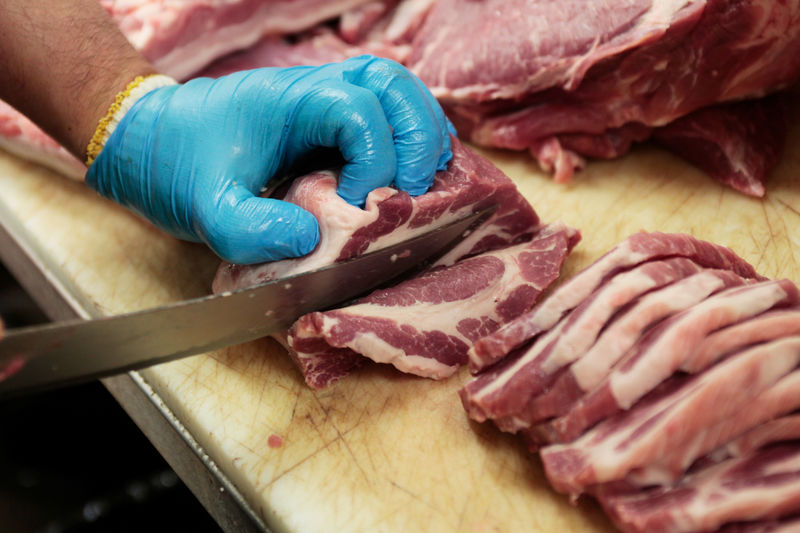BEIJING (Reuters) - China's customs administration warned meat exporting nations this week to comply with its rules on imports, following a series of problems it identified in Canadian pork shipments.
Representatives from around 30 countries attended a meeting on Monday afternoon in Beijing hosted by Bi Kexin, Director General of the Import and Export Food Safety Bureau under China's General Administration of Customs, said two diplomats who attended, and another who was briefed on the matter.
The General Administration of Customs did not respond to a fax seeking confirmation of the meeting.
It is highly unusual for so many countries to be invited to such a briefing, which involved a short rundown of six major issues found with meat imports, said the people.
However, the meeting follows a series of problems that China identified in Canadian meat imports. Three Canadian exporters have recently been banned from selling to China and Beijing has called for all Canadian meat imports to be suspended.
The first issue discussed involved ractopamine, a drug added to feed in some countries to make leaner pigs but banned in China and the country does not tolerate residue in imported meat.
Ractopamine was found in a pork shipment from Canadian producer Frigo Royal Inc and subsequently banned, Chinese customs said on June 18.
Officials also highlighted problems such as signatures that do not match stamps on documents and the use of unofficial email accounts.
Both of the sources present at the meeting said the key message from Chinese officials was: if you made mistakes, correct them. If you have not, prevent them.
The meeting could have been an attempt to show that the customs administration will treat all exporters equally, said one of the diplomats.
Ottawa has offered a plan to reassure China about the security of its meat export system, a Canadian minister said last week.
It came after Beijing said it discovered as many as 188 "counterfeit" veterinary health documents and the existence of "obvious safety loopholes," in Canadian meat shipments.
The meat import issue has escalated a dispute between the two countries that has also involved the arrests of each other's citizens and a halt in Canadian canola sales to China.
China may also be keen to ensure the smoother flow of meat imports ahead of an expected surge in demand as an outbreak of African swine fever has sharply reduced domestic pork output, said the diplomat.
